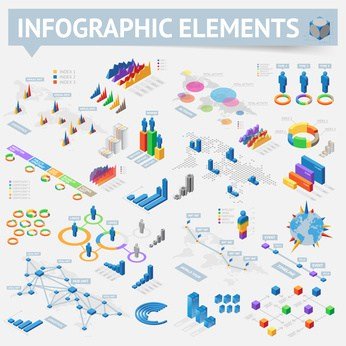
Infographics are everywhere these days. Indeed, you’ll find an entire section of infographics on this website. But are infographics all they are cracked up to be? Are they of any value to your site’s content?
After all, they can cost a lot of money to produce – more costly than the text that they are based upon. So you want to make sure that you get value out of them.
New research shows that the value of infographics depends on two factors
- The prior knowledge of the audience
- The presence of accompanying text
The researchers provided people with three different presentations of a news story about the economy. The story was real and was written by professional journalists. One group of people were given just the text, another group of people had the text and an accompanying infographic, whereas the third set of participants saw the infographic alone.
Before looking at the article or infographic, the researchers had conducted a survey which showed the degree to which each had prior knowledge and interest in the subject of the article.
What was found was that people who had prior experience and an interest in the subject were LESS engaged with the material if it had an accompanying infographic. The reverse was true if people had little prior interest or knowledge. In other words, it would seem that infographics presented with an article only help your audience if they do not already know about the subject or have little interest in it.
Importantly, the researchers found that when the infographic was presented on its own, the engagement was the same for both groups of people. That suggests that if you do not know your audience’s prior interest, you are better off only publishing the infographic with no accompanying text. (Guess how the infographics are presented in my infographics section…!)
This is yet another study which shows that engaging with people online is not a simple matter. You need to understand your audience in much greater detail than you might think. In this instance, just because your audience is interested in your topic area does not mean they are interested in every aspect or minor part of that subject. In turn, that means you cannot have a blanket rule for the use of infographics. You need to know the prior interest in each topic. Otherwise, you could present the wrong kind of material for maximum engagement. For some subjects, you will be better of using text only, for others you will need text and infographic together. The only sure thing that you can work with is providing infographics on their own.
Even so, on average, the infographic alone performed worse than text alone. So, this is more evidence that writing text is still the most valuable thing you can do for your website – assuming you fully understand your audience.

